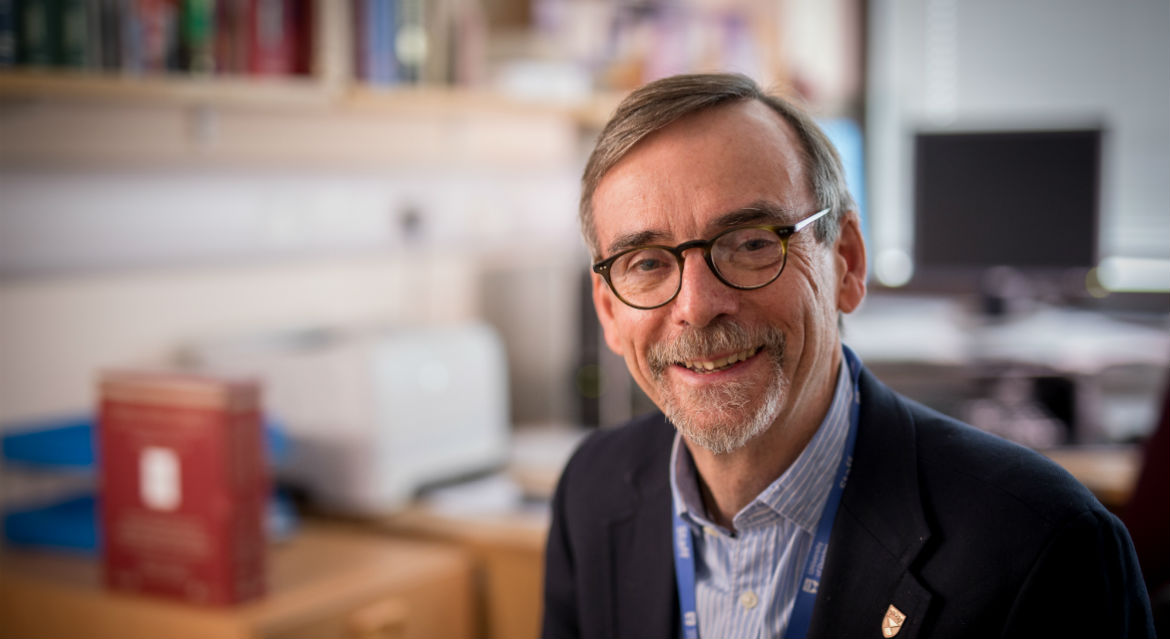#MadeAtUni `Nation’s Lifesavers’ - Professor Bob Steele
Published On Thu 16 May 2019 by Roddy Isles

When working as a senior NHS registrar in the late 1980s Professor Bob Steele was struck by how many of the patients with bowel cancer died. Then he moved to Nottingham, where trials of bowel cancer screening were happening.
“Most of the patients with colorectal cancer I had seen before had quite advanced disease and there sadly wasn’t much we could do for them. When I moved to Nottingham where trials of bowel cancer screening were happening I found most of my patients had early disease and were curable by surgery. That was a really motivating factor to see the effect of a public health intervention on the frontline.”
Over the past 22 years, since arriving at the University of Dundee, Professor Steele has seen just such an intervention save thousands of lives. He led the implementation of the Scottish Colorectal Cancer Screening Programme, which has become a model for how better screening can improve survival rates. Through his own research he has helped develop more sophisticated screening and cancer detection methods.
The impact of the bowel cancer screening programme continues to get stronger – it was announced in February 2018 that more Scots than ever are taking part in the screening, with the biggest increase among those living in the most deprived areas.
“We have more still to do, but the impact of screening is having a great effect in changing and saving the lives of people across Scotland,” said Professor Steele.
Professor Steele’s pioneering work on cancer screening was recognised with a CBE in 2018. He was Professor of Surgery in the School of Medicine between 1996 and 2018, and is Co-Director of the Scottish Cancer Prevention Network.
#MadeAtUni
We are supporting the MadeAtUni campaign, along with universities across the United Kingdom, to bring to life the everyday impact universities have on people, lives and communities, showing how everyone benefits from them.
We are changing lives with the work we do, from delivering gold standard teaching to our students to ensuring our research has impact locally and globally.
The campaign has already created a list of the UK’s `100 best breakthroughs’ made by universities over the last century. We featured for our contribution to developing the flat screen technology that is in use in virtually every mobile phone, tablet and television.
It could equally have been the pioneering work by Sir Alfred Cuschieri and colleagues which helped develop minimally invasive, or `keyhole’ surgery, or the work of our Drug Discovery Unit to develop a potential cure for malaria, or the creation by our forensic scientists of new techniques to help catch criminals.
The latest stage of the MadeAtUni campaign focuses on our `Health Pioneers’, the people whose work has not only changed but often saved lives.
For more on the campaign see www.madeatuni.org.uk
For media enquiries contact:
Roddy Isles
Head of Corporate Communications
University of Dundee
Nethergate, Dundee, DD1 4HN
Tel: +44 (0)1382 384910
Mobile: 07800 581902
Email: r.isles@dundee.ac.uk